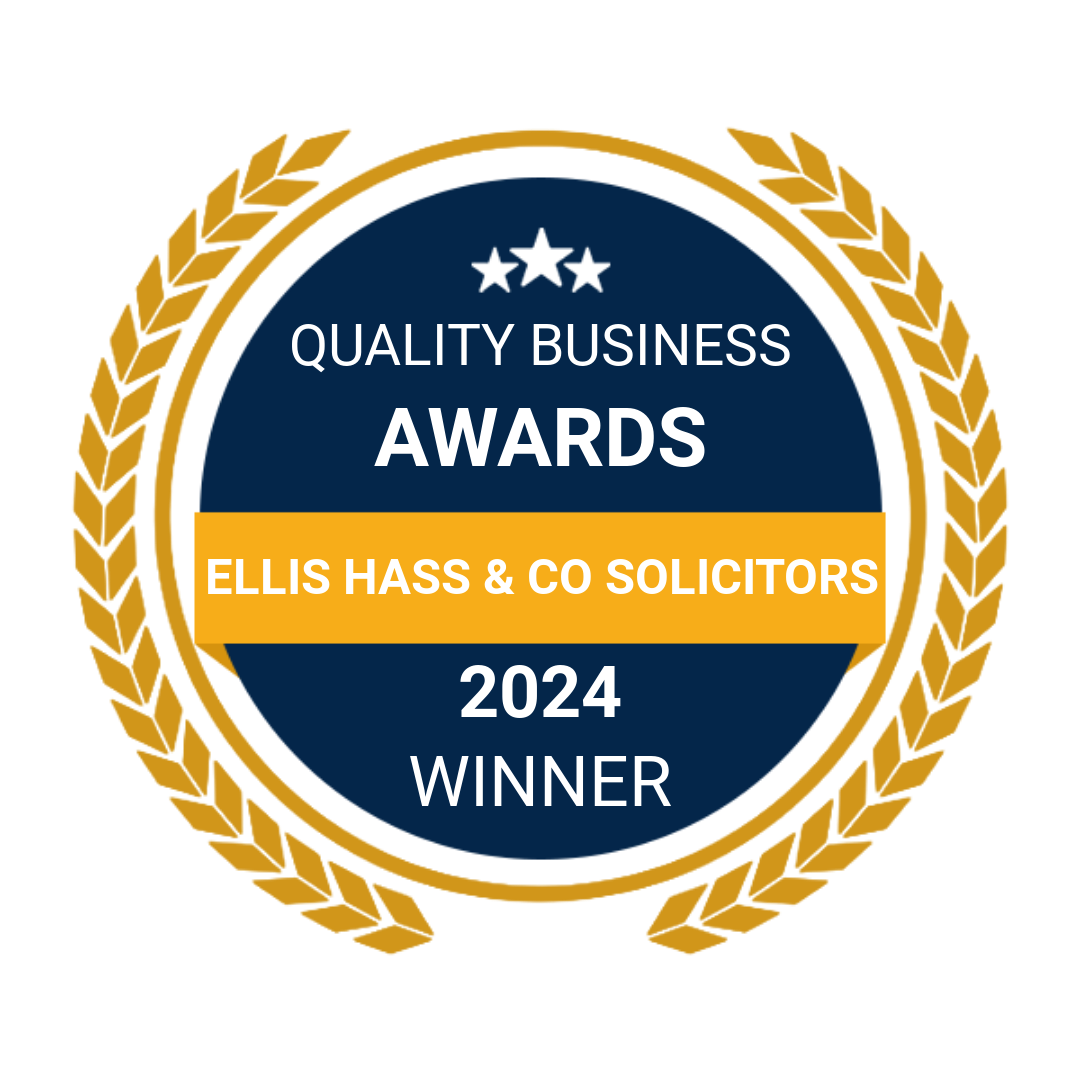Understanding Settlement Agreements: Employee Impact, Benefits and the Importance of Non-Disclosure
Settlement Agreement Law Advice UK: Employee Impact and Benefits
Been Handed A Settlement Agreement? Here’s What Happens And What To Do Next
It’s completely normal to feel shocked, pressured or worried when you’re handed a settlement agreement.
You might be thinking, “Do I have to sign this now?”, “What happens to my pay, bonus or reference?”, or “Can I talk about this - what does the confidentiality/non-disclosure bit actually mean?” You’re not alone, and you don’t have to rush.
In plain English, a settlement agreement (sometimes called a compromise agreement) is a legally binding contract that sets out how your employment ends. It covers what happens, what you’ll be paid, any confidentiality terms, and the next steps.
Right now, your to-do list is simple: understand the key terms, decide what you want to negotiate, and get independent legal advice. It’s worth noting that employers often contribute to your legal fees.
If you’ve just been given an agreement and are wondering what to do next, we can help with a fixed-fee settlement agreement review led by Jane Ellis, Employment Solicitor.
Settlement Agreements Explained
What Is A Settlement Agreement And Why Is One Necessary?
If you’ve just been given a settlement agreement and you’re unsure what happens next, you’re not alone.
A settlement agreement (sometimes called a compromise agreement) is a legally binding contract between you and your employer that sets out how your employment will end, what you’ll be paid, and the confidentiality both sides agree to so you can move on without a tribunal.
When Are Settlement Agreements Used?
They’re common where there’s a risk of claims such as unfair dismissal, discrimination, redundancy-related issues, or breach of contract.
Instead of lengthy proceedings, both sides agree the terms, payments and next steps in one document.
Why Settlement Agreements Can Help Employees
- Clarity on what happens: pay, notice, reference and confidentiality.
- A faster, private resolution with less stress than going to court.
- A chance to negotiate improvements before you sign.
- You’re required to get independent legal advice; employers often contribute to legal fees.
- You don’t have to sign immediately - you’re entitled to time to consider.
What’s Usually Covered In A Settlement Agreement
- Payments (salary to your leave date, holiday, bonus/commission).
- Tax on each part (for example, extra compensation vs normal pay).
- References (agreed wording), confidentiality and not making negative comments about each other.
- A promise not to bring claims in future, and any terms where money could be repaid if key rules are broken.
- Post-employment restrictions (like non-compete/non-solicit) and whether they’re changed or kept the same.
- Practical bits: returning company property, when you’ll be paid, and your decision window.


Worried about your settlement agreement?
Jane Ellis is a specialist settlement agreement solicitor with 30+ years’ experience. She gives clear, independent advice so you understand what happens next and whether to negotiate. Fast turnaround available, and your employer often contributes to legal fees. Speak to Jane for free today.
Jane has particular expertise in negotiating and advising on Settlement Agreements. Since qualifying as a Solicitor in 1991 Jane has developed a depth of experience in handling the termination of employment of senior executives and directors whether acting for the employer or the employee.
Jane specialises in all areas of Employment Law mainly acting for employees and Senior Executives. She has particular expertise in the rail and automotive sectors but has wide experience in many industry sectors.
Jane restored our faith in mankind. She truly is one of life’s angels and helped guide our ship to a safe shore with success. The money will help provide short term security, rest and recovery and we can assess where we go from here as a family.
We have been blessed to have Jane on our side as an expert and cannot be more grateful. Jane has very quickly become more than our solicitor and a true friend indeed.
Settlement Agreement Benefits For Employees
What Are The Benefits of Settlement Agreements for Employees? Compensation, Confidentiality and Clarity
A well-structured settlement agreement can give employees financial support, privacy and certainty at a difficult time. Here’s what happens and why these agreements can help when you’re deciding what to do next.
Settlement Agreement Financial Compensation
You’ll usually receive a package that may include salary to your leave date, accrued holiday, and sometimes bonus/commission. The agreement can also include extra compensation to help with your transition. Where notice isn’t worked, your notice pay is usually paid instead of notice and taxed like normal pay.
Why this helps: a financial cushion, clear numbers in writing, and the chance to negotiate a better figure before you sign.
Settlement Agreement Confidentiality
Most agreements include confidentiality provisions, with sensible exceptions so you can speak to your partner, legal/financial advisers, and regulators.
Why this helps: protects your privacy and reputation while keeping the exit professional.
Settlement Agreements Avoid Legal Action
Agreeing terms means you can avoid the cost, delay and uncertainty of an employment tribunal.
Why this helps: faster resolution, less stress, and more certainty than litigation.
Settlement Agreements Provide Clear Terms
Everything sits in one document: payments, tax, your notice period, reference wording, returning property, and payment timings.
Why this helps: you know exactly what happens next and what each side must do.
Settlement Agreements Help with Future Employment
Agreements often include an agreed reference, a neutral internal announcement, and clarity on post-employment restrictions.
Why this helps: smoother job searches and fewer surprises after you leave.
Independent Legal Advice (Often Employer-Funded)
You must take independent legal advice before it becomes binding; employers commonly contribute to your legal fees.
Why this helps: expert guidance at little or no cost to you, so you can make an informed decision.
Thinking about pushing for better terms? Read
How To Negotiate a Settlement Agreement.
Settlement Agreement Confidentiality Explained
Can You Talk About Your Settlement Agreement?
It’s normal to feel unsure about what you can say once a settlement agreement is on the table. Most agreements include confidentiality (non-disclosure) and non-disparagement clauses. In practice, that means you shouldn’t share the deal terms, the underlying dispute, or communications about the exit - especially on social media.
Good agreements also include sensible carve-outs so you can speak to your legal adviser, financial adviser, and (usually) a close family member, and still make protected disclosures to regulators where applicable. The aim is privacy and a clean break, not to silence you unfairly.
What Does This Mean for You?
- Day-to-day: Stick to a neutral explanation with colleagues, recruiters or future employers.
- Allowed chats: Private discussions with your solicitor/financial adviser and a close family member (kept confidential).
- Online: Avoid posting about the dispute, the employer or the terms.
- Fairness checks: Ask for mutual wording, clear exceptions, and permission to use an agreed reference.
- Consequences: Breaking confidentiality can mean repaying money or other legal steps - understand the risks first.
- Next step: Get
independent legal advice so you know what’s reasonable and what you can negotiate.
Trusted Settlement Agreement Solicitor UK
In Need of Advice? Speak to Jane
Jane Ellis is a Partner at Ellis Hass & Co with over 30 years’ experience in employment law. She read Law at Oxford and qualified as a solicitor in 1991.
Jane acts mainly for employees and senior executives and has particular expertise negotiating and advising on settlement agreements, including senior exits.
Speak to Jane about your settlement agreement.
Or learn more about her background: Jane Ellis, Employment Solicitor.
Settlement Agreement Effects on Next Employment
How Can A Settlement Agreement Impact Your Future?
It’s common to worry about references, your employment record, and future job prospects when a settlement agreement is on the table. Used well, it can protect your reputation, give you a clear, agreed reference, and make the move to your next role smoother.
Here’s what to look for and what to do next.
Settlement Agreements Protect Your Employment Record
Well-drafted agreements often include neutral exit wording (e.g., “mutual agreement” or redundancy-style language) and a plan for how your departure will be described to recruiters or hiring managers.
Why it matters: it avoids negative framing and keeps conversations with future employers straightforward.
Settlement Agreements Outline Clear, Agreed References
You can negotiate an agreed reference - either a short reference letter or a commitment to provide consistent, factual references (usually role title, dates, brief duties).
Why it matters: you know exactly what a future employer will hear, and it’s the same every time.
Settlement Agreement Confidentiality Clauses
Confidentiality (non-disclosure) and non-disparagement keep the dispute and the terms private. Good drafting includes carve-outs so you can speak to your legal/financial advisers and a close family member, and make protected disclosures to regulators if needed.
Why it matters: protects your privacy and keeps your professional narrative tidy without silencing you unfairly.
Restrictive Covenants and Your Next Role
Your agreement may reaffirm or vary existing restrictions like non-compete or non-solicit clauses.
What to check: the duration, scope (clients/territory/role), and whether any new or tighter restrictions are being added and if so, whether you’re receiving additional compensation or a shorter period.
Internal/External Announcements
Many employees agree a neutral internal announcement and a short external line for recruiters (e.g., ‘role made redundant as part of restructure’).
Why it matters: everyone is aligned on the message, reducing awkward questions.
Before you sign,
check the essentials in what to check before you sign.
Trusted Settlement Agreement Lawyers UK
Offering Expertise and Empathy: Why You Should Speak to Jane Ellis
When you’re worried about what happens next and whether to negotiate, you want a settlement agreement solicitor who combines deep experience with a calm, human approach.
Jane Ellis has 30+ years in employment law. She mainly acts for employees and senior executives, with particular expertise advising on and negotiating settlement agreements and senior exits.
What You Will Get With Jane:
- Clear, independent advice on your options, risks and likely outcomes - no pressure to sign.
- Strategic negotiation: shaping terms on pay, references and restrictions so you move on confidently.
- Practical process: quick response times and a free initial 15-minute call to get urgent questions answered.
- Proven track record:
a highly rated team and multi-award recognition.
Jane has particular expertise in negotiating and advising on Settlement Agreements. Since qualifying as a Solicitor in 1991 Jane has developed a depth of experience in handling the termination of employment of senior executives and directors whether acting for the employer or the employee.
Jane specialises in all areas of Employment Law mainly acting for employees and Senior Executives. She has particular expertise in the rail and automotive sectors but has wide experience in many industry sectors.
Jane restored our faith in mankind. She truly is one of life’s angels and helped guide our ship to a safe shore with success. The money will help provide short term security, rest and recovery and we can assess where we go from here as a family.
We have been blessed to have Jane on our side as an expert and cannot be more grateful. Jane has very quickly become more than our solicitor and a true friend indeed.
Settlement Agreement FAQs
Still Unsure? Jane Has Answered Some Common Questions You May Have Below
Settlement Agreement Advice: Next Steps
The Next Step To Dealing With Your Settlement Agreement: Speak With Jane
You’ve seen how a well-structured settlement agreement can help: fair compensation, clear terms, confidentiality that protects your privacy, and a smoother path to your next job with agreed references and sensible restrictions. The key is making sure the details work for you - from payments and tax handling to what you can say and when you’ll be paid.
In short, your next steps are:
- Understand what happens under your draft and your options.
- Decide what to negotiate (figures, reference wording, restrictions, timing).
- Get independent legal advice before you sign - no pressure to rush.
Ready for clear, independent advice about your settlement agreement?
Jane Ellis combines deep expertise in settlement agreements with a calm, empathetic approach - so you feel informed, reassured and in control. She’ll review your draft, flag risks, and outline practical next steps to get the right outcome for you.
You don’t have to sign today. A short conversation can make your options - and the path forward - crystal clear.
Jane has particular expertise in negotiating and advising on Settlement Agreements. Since qualifying as a Solicitor in 1991 Jane has developed a depth of experience in handling the termination of employment of senior executives and directors whether acting for the employer or the employee.
Jane specialises in all areas of Employment Law mainly acting for employees and Senior Executives. She has particular expertise in the rail and automotive sectors but has wide experience in many industry sectors.
Jane restored our faith in mankind. She truly is one of life’s angels and helped guide our ship to a safe shore with success. The money will help provide short term security, rest and recovery and we can assess where we go from here as a family.
We have been blessed to have Jane on our side as an expert and cannot be more grateful. Jane has very quickly become more than our solicitor and a true friend indeed.
READ OUR BLOG POSTS & LATEST NEWS















